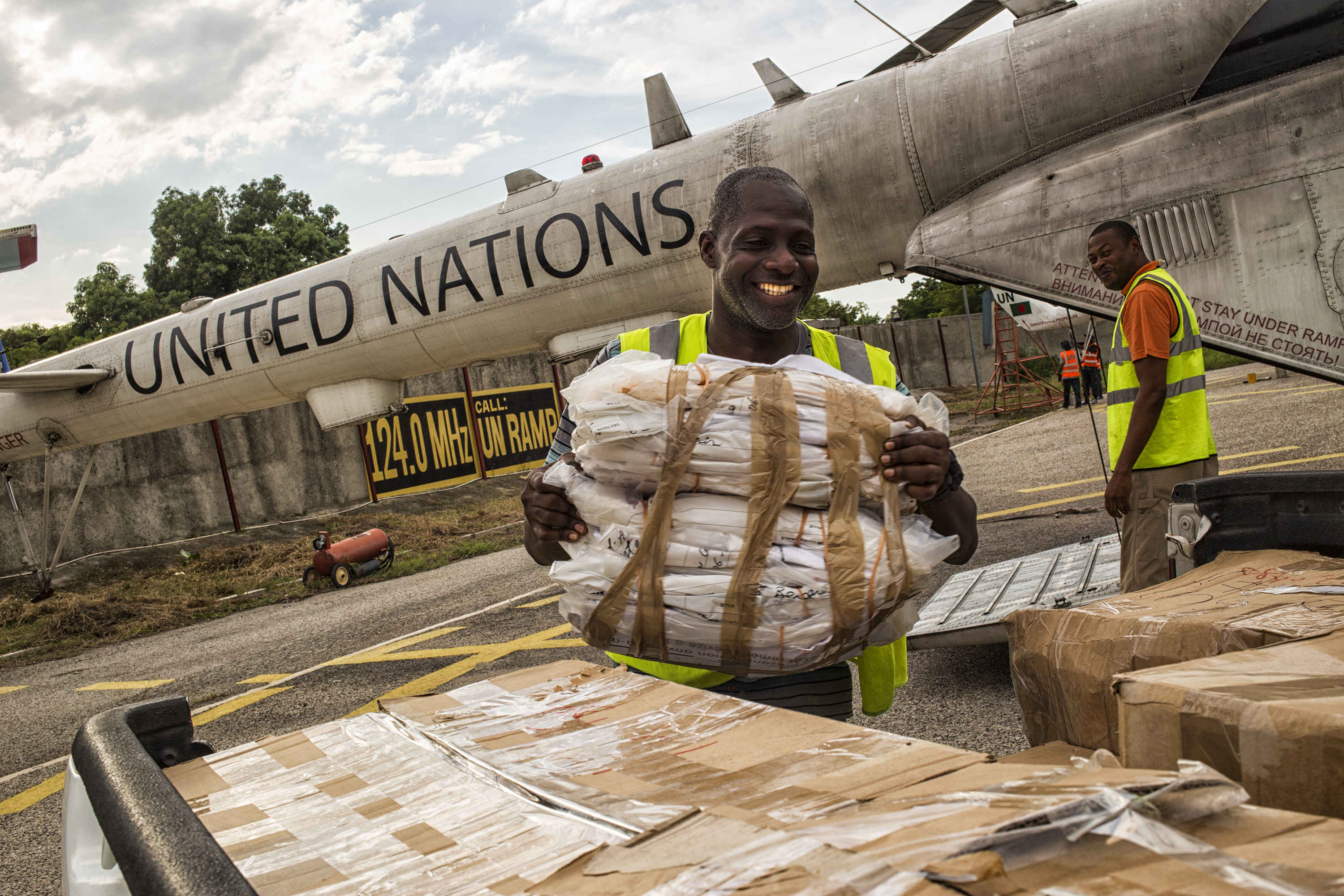
MINUSTAH/Logan AbassiThe United Nations Mission in Haiti (MINUSTAH) worked with Haiti's Provisionary Electoral Council to gather and transport voter’s ballots from around Haiti to the capital for tabulation.
Respondent Demographics
In 2017, more than 7,200 respondents completed the survey, making it the largest client satisfaction survey in the UN system. Participation increased by 4% from 2016, further strengthening the respresentativeness of the survey results. Most survey respondents come from peacekeeping missions (71%) and are civilian personnel (77%). Among civilians, approximately half are international (51%) staff. Military personnel account for 16% and police for 7% of respondents.
Overall Client Satisfaction
Compared to April 2016, overall client satisfaction has slightly improved. Overall, 71% of respondents are satisfied or very satisfied with field support services, 12% hold a neutral opinion and 17% are dissatisfied or very dissatisfied. The difference amongst client groups is decreasing, for the first time Police, Military and Civilian personnel all have satisfaction rates ranging from 70%-73%.
Satisfaction with Services
Satisfaction with many of our field support services has improved since 2016. The share of satisfied or very satisfied respondents is highest for payroll (83%), ICT (79%) and ICT/GITT user support (76%). It is lowest for professional development (50%), recruitment process (51%) and recreational options in camp (51%).
Importance of Services
In addition to client satisfaction, the survey also collected data on which services are important to clients to help us identify where to focus efforts. Across all client groups, services that are important and where satisfaction is relatively low include professional development, recruitment process, shared sanitation facilities, entitlements/benefits processing and medical services. In addition to that, for military personnel, priority services include internet connectivity and living accommodation.
Overall Satisfaction by Mission
Results for overall client satisfaction by mission continue to show large variation, ranging from over 80% satisfied or very satisfied clients to less than 40%. Compared to April 2016, client satisfaction has slightly or significantly improved in most missions, while it decreased in five missions.
Reasons for Dissatisfaction
The survey asked dissatisfied respondents for the specific reasons for their dissatisfaction with many of the key services. This provides managers with more information on how to address root causes of dissatisfaction. For recruitment, for example, clients point to the length of the process and the need for more support from Human Resource (HR) sections.
For more information, including tables and other graphics visualising the survey results, confer to Related Documents on the right.
From Insight to Action
A. Distribution
To ensure survey results are translated into action, UN Field Support shares the survey results broadly: overall, service-specific and mission-specific results are presented and shared with management in other UN departments, as well as all mission and service center leadership teams.
B. Action
For the first time all missions, service centers, and Field Support divisions have to submit standardized Action Plans in response to the survey results. Field support managers will particularly focus on five action areas:
-
Focus on services and issues that matter to clients and have low satisfaction rates, including professional development, recruitment, entitlements/benefits processing and medical services for civilians; internet and living accommodation for military; shared facilities for police.
-
Strengthen the quality of management, including management related to client orientation, mission management, resource stewardship and accountability, etc.
-
Provide concise checklists for process-based services, including entitlement/benefits processing, etc. to facilitate service provision and strengthen process transparency.
